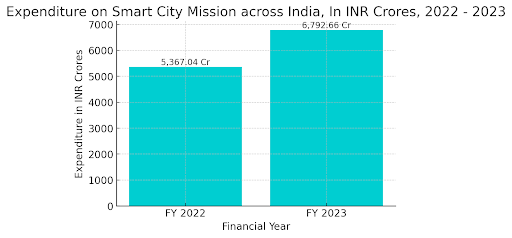The Future of Smart Home Automation
The Indian smart home automation market is poised for significant growth, driven by technological advancements, rising consumer awareness, and a focus on security. As AI and IoT become more integrated into smart home devices, these systems are becoming increasingly intuitive and responsive to user needs. The smart home automation market in India is expected to grow significantly, with projections indicating it will reach ₹1,19,752 crore by 2029.
This growth is fueled by several key trends:
- Integration of AI and IoT: The adoption of artificial intelligence and the Internet of Things (IoT) is transforming smart home devices into more intuitive and responsive systems. For instance, AI can analyze user behavior to automate tasks, such as adjusting lighting based on the time of day or suggesting grocery orders based on pantry inventory[3].
- Increased Consumer Awareness: As consumers become more aware of the benefits of smart home technology—such as energy savings and enhanced security—demand continues to rise.
- Focus on Security: With rising concerns about home security, the market for smart surveillance and access control systems is expanding rapidly. Innovations like facial recognition doorbells and AI-integrated cameras are becoming increasingly popular.
Real-World Applications of Smart Home Solutions
Smart home solutions are not just theoretical; they have practical applications that enhance daily life:
- Automatic Lighting Control: Lights can be programmed to turn on or off based on occupancy or ambient light levels, providing convenience and energy savings.
- Enhanced Work-from-Home Experiences: Smart technology can optimize home office environments by adjusting lighting and temperature to improve productivity.
- Voice Command Integration: Systems like JUNG allow for voice-controlled management of various home functions, creating a hands-free experience for users.
Looking ahead, the potential for smart home automation continues to grow. Innovations in AI and machine learning promise to create even more responsive living environments, where homes anticipate user needs based on habits and preferences.
However, as the market expands, issues of privacy and data security remain critical. Companies like JUNG are committed to maintaining high standards of data protection, ensuring that smart homes remain secure sanctuaries for their occupants.

With JUNG, you’re not just installing a few smart devices – you’re creating a holistic ecosystem that enhances every aspect of your daily life. From increased comfort and convenience to improved energy efficiency and security, a JUNG smart home is an investment in your quality of life.
Discover how our smart home solutions can transform your space into a haven of comfort, efficiency, and style. Visit our website https://www.jung-group.com/en-ASIA/ or contact one of our expert consultants to begin your journey towards smarter living. With JUNG, the future of home automation isn’t just a possibility – it’s here, ready to be experienced.
References:
Mordor Intelligence. (2023). India Smart Home Market – Growth, Trends, COVID-19 Impact, and Forecasts (2023 – 2028). https://www.mordorintelligence.com/industry-reports/india-smart-home-market
Statista. (2023). Smart home market size in India from 2019 to 2024. https://www.statista.com/statistics/1174909/india-smart-home-market-size/
MarketsandMarkets. (2023). AI in Smart Home Market by Technology, Product, and Geography – Global Forecast to 2028. https://www.marketsandmarkets.com/Market-Reports/ai-in-smart-home-market-225870301.html


